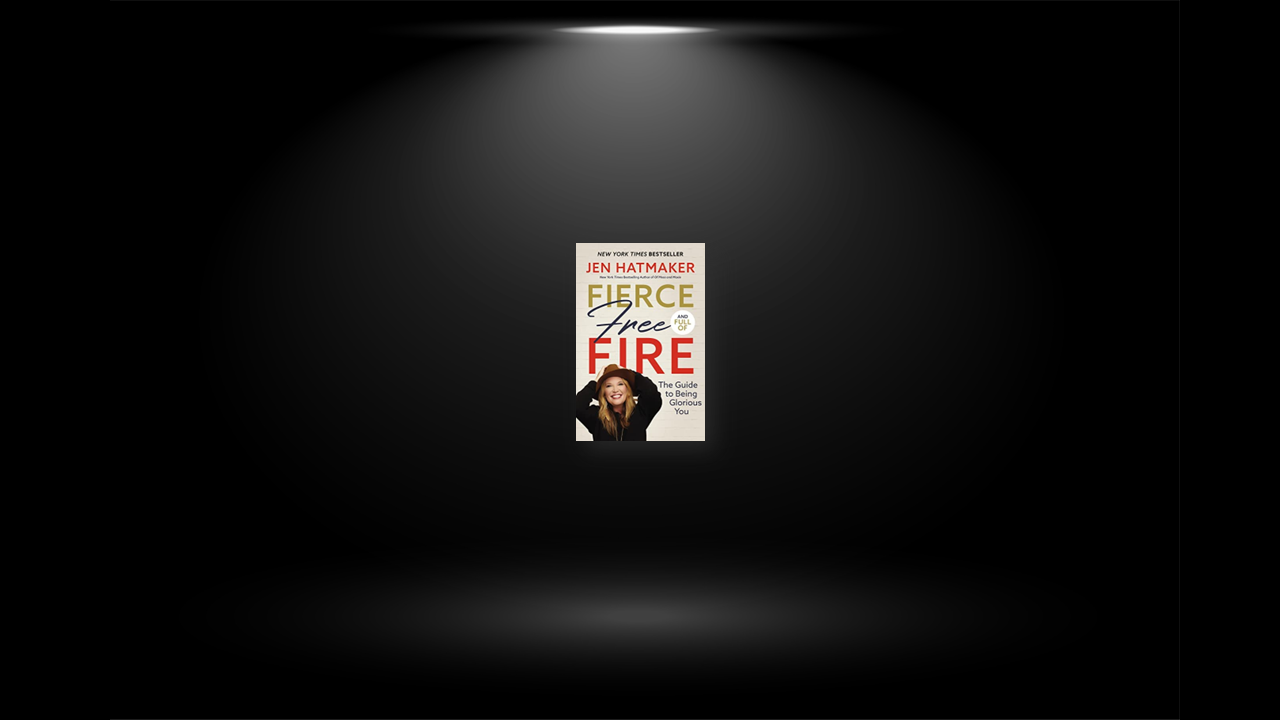I Am Exactly Enough
We are free to exist on this planet in the ways we flourish, because there is an abundance of everything: joy, talent, love, dreams, hope, goodness, triumph, creativity, delight. Every one of these is a renewable resource. Never, not for one day, has there not been enough. Someone else’s space does not diminish yours. You are entirely free to celebrate your sisters, to pull up more chairs to the table, to lead, to learn, to cheer them on, to push them forward, to share your influence. You are not threatened; therefore, you do not need to be a threat.
There is room for you, just the right amount. There is room for others, just the right amounts. There is an endless supply of portions. Settle right into your skin, dear one. What a great delight you are. Be content and proud of your range, the lane you thrive in, the capacity in which you blossom.
I Am Strong in My Body
Your body walked with you all the way through childhood—climbed the trees and rode the bikes and danced the ballet steps and walked you into the first day of high school. How else would you have learned to love the smell of brownies, toasted bagels, onions and garlic sizzling in olive oil? Your body perfectly delivered the sounds of Stevie Wonder, Whitney Houston, and Bon Jovi right into your memories. She gave you your first kiss, which you felt on your lips and in your stomach, a coordinated body venture. She drove you to college and hiked the Grand Canyon. She might have carried your backpack through Europe and fed you croissants. She watched Steel Magnolias and knew right when to let the tears fall.
You may hate her, but no one else does. “It turns out that experiences of strength in our bodies, feeling the movement that we make in space, can influence the way we feel about our bodies,” wrote Hillary McBride. Our mind and body, together, are intricately interwoven, and together are all parts of who we are. This is why when we don’t like our bodies, we feel badly about our whole selves. Or when we feel really powerful in our bodies, we feel really powerful in ourselves. If our identity is just as much our bodies as it is our minds and thoughts, then we can use our bodies to help us experience power in a way that is just as important to the self as having thoughts and ideas or words that make us feel powerful.8
I Deserve Goodness
Goodness must be fought for. It doesn’t come easily in this harsh world that insists we prioritize cynicism, anger, fear, shame. Fury is better currency, frankly. Despair or inertia bob along the waters without any help. Our cultural equilibrium will not naturally settle on The Deserved Goodness of Humanity. It has too many enemies conspiring to unbalance the equation: power, patriarchy, fear, regret. If you still struggle to imagine it for yourself, could you imagine it for your children, your beloved people? Is it so hard to envision a world in which they deserve good things and not harm?
This work begins in our minds, transfers to our expectations, materializes through our words, and emerges through our actions. You know when you see a woman who has done this work. She is full of joy and generosity; she loves herself well, which seems rare these days. She is hung up on exactly none of the garbage the rest of us are. She laughs and loves demonstratively. You never catch her absolving small behavior but calling people to live big, love big, dream big, forgive big.
You know her dreams because she is chasing them; she feels worthy of their importance. She employs healthy boundaries with people who prefer her subservience, and their disapproval doesn’t define her. This alone feels miraculous, yes? She is absolutely certain, and you could not convince her otherwise, that everyone deserves goodness, and you won’t catch a whiff of jealousy, schadenfreude, or superiority. She knows she is loved, so she knows everyone is loved, even when they don’t know it and act out of brokenness. You know her, because at some point in your life, she has probably loved you well.
I Need More Connection
It is good and important work to live a connected life. If this is the area where you concentrate your energy, it is time well spent. Without even direct correlations, a sense of real community will improve your mental health, resiliency, and productivity, like when you cut out dairy to alleviate stomach aches and discover your skin clears up too. Connectedness is powerful fuel for a creative, courageous life. It sets a beautiful example for our children, because we surely don’t want to pass on the suggestion that they won’t need anyone else to flourish.
Where can you start looking for connection? Here are some potential pools: your neighborhood, your kids’ school, your workplace, church, the gym, book clubs, meet-up groups in your city (this is a real thing), activist groups, running clubs, support groups, any special-interest space (knitting, writing groups, cooking clubs, dog lovers), Bible study, playgroups, Bunco, professional networks, volunteer orgs.
To those of you in lucky possession of rich relationships and to those in dire need of them, please look around. People are so lonely, and they are everywhere. We have great power over the disconnection that plagues our culture. Our cities are full of new moms, just-moved-here folks, immigrants, new neighbors, people peeking their heads into church, relocated young adults apart from their families, refugees, college kids, new hires. They are also full of people who’ve lived there for a decade and still crave more connection. Throw open your home. Invite a new friend to coffee, to playgroup, to book club, to dinner. Plan a neighborhood block party. Reach out to the immigrant and refugee community in your city (these mamas are so lonely and starving for friends). Widen your circle. Ask someone to Bible study. Organize a Girls’ Night Out. Send a quick text.
I Want This Dream
If you are staring down a dream that requires fresh, brand-new knowledge you are not yet in possession of, take heart. The very best among us had to learn too. Google says you can do this! You can learn anything. The only question is, do you really want to? This is that inside you/outside you integrated work. If you sincerely want something in your heart, feed it well and let it grow, sister. So much potential exists.
Dr. Carol Dweck explained the difference between feeling stuck and believing in possibility using the terms fixed mindset and growth mindset. In her book, Mindset: The New Psychology for Success, she wrote: “For twenty years, my research has shown that the view you adopt for yourself profoundly affects the way you lead your life.” Sara Robinson wrote, “When we believe that the qualities we have cannot be changed, that they are set in stone, we have a fixed mindset. With this mindset, we are likely to believe that change is impossible and we are stuck with what we are “given.”2
The contrast to the fixed mindset is the growth mindset, which acknowledges that we start with a set of qualities, but they can be cultivated with effort and grow through application and experience. This doesn’t mean we can all be geniuses or Olympians, but it does acknowledge potential. People with a growth mindset approach a situation understanding that, even if they falter at the start, they can improve. In short, everything about a person is malleable. So, there are no smart or dumb people—only those who decided to learn the ropes. There are not capable or incompetent people—only hard-working ones. You aren’t doomed to the sidelines merely observing the game; you could join if you are willing to put in the effort. Just about anyone can learn to dance, garden, cook, write, paint, build, rewire a lamp, practice law, pick up German, speak publicly, start a nonprofit, make jewelry, exercise, create spreadsheets, podcast, teach the Bible, be a stylist, mix cocktails, fix an engine, tile a bathroom.
I Want to Choose My Yeses
In Essentialism Greg McKeown wrote, By applying tougher criteria we can tap into our brain’s sophisticated search engine. If we search for “a good opportunity,” then we will find scores of pages for us to think about and work through. Instead, we can conduct an advanced search and ask three questions: “What do I feel deeply inspired by?” and “What am I particularly talented at?” and “What meets a significant need in the world?” Naturally there won’t be as many pages to view, but this is the point of the exercise. We aren’t looking for a plethora of good things to do. We are looking for our highest level of contribution: the right thing the right way at the right time.
To help us as we consider our options, McKeown suggests the 90 percent rule, which looks like this: First, think about the single most important criteria for that decision. What is your goal? What endgame have you prioritized? What problem are you trying to solve? What is the main thing you are after? What are your nonnegotiables? How can your filter get as selective and specific as possible? Then, laser focused on that criteria, give each option a score from 0 to 100. If it scores below a 90, automatically change its rating to 0 and boot it.
The popular TED speaker Derek Sivers described his selective criteria like this: “If it’s not a hell yes, it’s a no.” We put each choice to an extreme test: Do I feel wild with enthusiasm here? Does this require virtually no second-guessing? Does this line up with my convictions, talents, and service goals? Do I experience what Shonda Rhimes calls the hum: “When I am hard at work, when I am deep in it, there is no other feeling. The hum sounds like an open road and I could drive it forever. The hum is a drug, the hum is music, the hum is God’s whisper right in my ear.”


